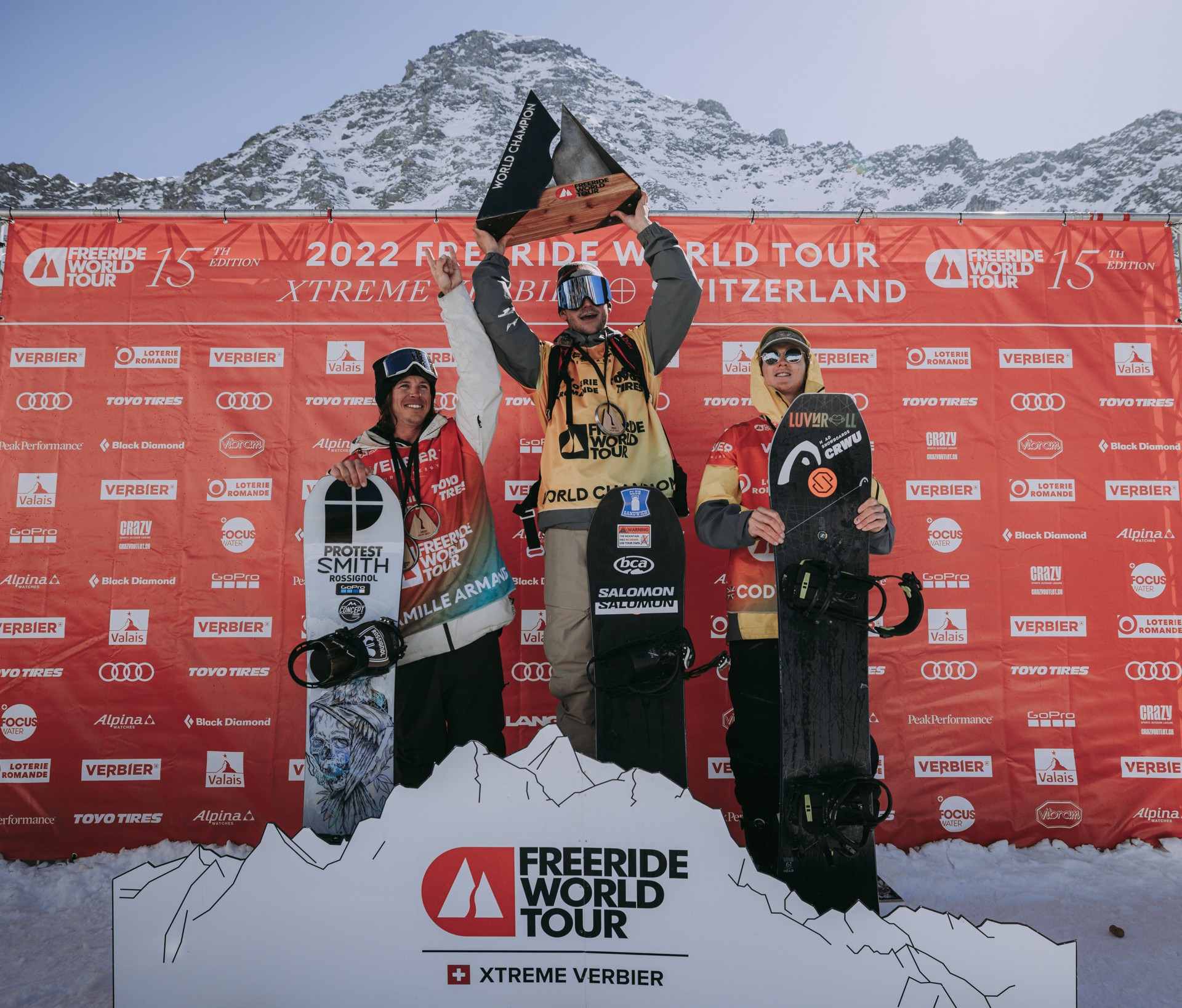
14 Oct 2025
In the high-adrenaline world of freeride skiing, few athletes bring as much technical precision and heartfelt passion as Ben Richards. Having transitioned from ski racing to freeride skiing in 2019 during a transformative working holiday in Revelstoke, Canada, his story is one of resilience, creativity, and a deep connection to the mountains. Despite early challenges, including navigating competitions during the COVID-19 pandemic, Ben has risen to become a standout talent in the freeride community. In this exclusive interview, he shares his journey, the influences that shaped him, and his vision for the future of the sport.
What inspired me to start freeride? It was around 2019. I quit ski racing and went on a working holiday in Revelstoke, Canada. That was when I really started exploring more of the mountains and fell in love with the discipline of freeride skiing.
The biggest challenges were probably due to the timing. My first season trying the qualifiers was in 2020 when COVID started. There were travel restrictions, and events were getting canceled. That made the first couple of seasons really tough.
I would say both Craig Murray and Finn Billis. They are friends from my hometown, and I grew up skiing alongside them. Craig, in particular, encouraged me to get into freeride skiing and try the events. Finn was a childhood friend, and skiing with him at Treble Cone really shaped my skiing.
Maybe a lot of people don’t know that I was a ski racer until I was 18. Even though I love the freestyle side of freeride skiing, my roots are in ski racing, and that still has a big influence on how I ski now.

My preparation happens in New Zealand, where it’s winter. I coach the freeride team in New Zealand, so in a way, my preparation is coaching others, which reminds me of what I should be doing for myself when competing.
My off-season revolves around skiing since it’s winter at home. I spend a lot of time skiing, but also in the gym and on bikes, depending on what’s available during the winter.
I approach it cautiously. There are so many elements to consider when freeride skiing, so I try to limit the risks as much as possible. Injuries can hold me back from skiing, so I aim to avoid them.

I don’t have specific rituals. I just remind myself that it’s just skiing—something I love doing—so I try not to overthink it.
I try to pick lines that look fun to me. A few years ago, I might have let what others were doing influence my choice, but now I focus on picking something I want to ski for myself.
I think my biggest strength is my technical ability from my ski racing background. That foundation helps me stay in control, even when skiing fast.
I wouldn’t say I handle pressure particularly well. I don’t think I perform better under pressure, but I try to remind myself that it’s just skiing and keep a level head.

In between winters, I try to take some time off to spend with family and friends. I also enjoy activities that aren’t related to skiing, like biking with friends.
I’m passionate about climate change, especially because we’re seeing massive effects on New Zealand’s winters. It’s something that’s really important to me because I want to keep skiing and eventually teach my kids to ski in New Zealand.
I always bring my skis because all of my trips revolve around skiing. They are an essential part of the puzzle.

My main goal is to make it to Verbier. That’s a good place to start. I’d love to stand on the podium a few more times, but making it to Verbier is the most important goal.
Hopefully, I’m still skiing in ten years. I’d like to spend a few more seasons on the tour and maybe make some films along the way. The new World Championships will be exciting, and I want to stay involved in the sport.
Not particularly new tricks, but I hope to showcase more variety this year. I feel like I played it safe last year, so I’d like to mix things up a bit.
The sport is in a cool place right now, blending traditional freeride with a more freestyle approach. I’d like to see freeride maintain its core style while bringing in more freestyle tricks on traditional freeride lines.

Either winning at Fieberbrunn earlier this year or being Rookie of the Year and finishing third overall. Both were pretty cool.
The best advice I’ve received is to stick to what I want to do. Don’t try to please the judges or anyone else—just ski for yourself.

Climate change is something that’s having a massive impact on New Zealand’s winters. We’ve had seasons where we barely got enough snow to run the lifts. It’s something that affects my life and sport in a big way, and it’s a conversation we need to keep having.
Freeride is such a raw and simple sport. We get dropped at the top of a mountain, and we can do whatever we want as long as we make it down. It gives you a lot of freedom for self-expression and creativity.
My background in ski racing influences my skiing a lot. I love being able to carve turns, even when I’m off-piste, and that plays a big part in how I approach my lines now.